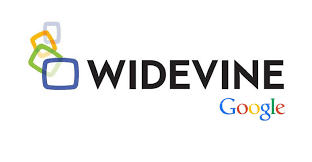![]() The COVID-19 crisis caused Google to change its release calendar for the Chromium browser sources, and they decided to skip the 82 release altogether, in order to focus on keeping the 81.x versions as safe as possible while working on their upcoming 83 release.
The COVID-19 crisis caused Google to change its release calendar for the Chromium browser sources, and they decided to skip the 82 release altogether, in order to focus on keeping the 81.x versions as safe as possible while working on their upcoming 83 release.
And so this week, Chromium 83.0.4103.61 was introduced to the “Stable Channel” with lots of bugs fixed, of which 38 are security fixes. There’s also a lot of new and improved features which are introduced in this release but it seems that many of those are only available in Google’s official Chrome binaries.
One of the notable changes for Chromium users (as opposed to Google Chrome users for which it has always worked this way) is that the Widevine content decryption module is now an official component of the browser. Like with Mozilla Firefox, the Chromium browser will now automatically download the Widevine library into your personal profile and enable access to DRM-protected content. In the URL “chrome://components/” you’ll see Widevine listed as a component, displaying its current version and a “Check for update” button.
Slackware packages for Chromium 83.0.4103.61 are in my package repository already. They are available as 32bit and 64bit versions for both Slackware 14.2 and -current.
Note that because of the changed status of Widevine, a separate “chromium-widevine-plugin” package containing the Widevine DRM library is no longer required. However…
It seems that there is an issue with the online availability of a 32bit Widevine library of the version that Chromium tries to download. As long as that is not fixed and only if you are using the 32bit Chromium browser, keep using my “chromium-widevine-plugin” please.
You can test whether Widevine works on https://bitmovin.com/demos/drm and validating that the page says “Detected using Widevine” and not “Detected NO DRM“). If you can not immediately get Widevine to work with your 32-bit browser, check that the content of the file in your Chromium profile “${HOME}/ .config/chromium/WidevineCdm/latest-component-updated-widevine-cdm” points to the installed location of the chromium-widevine package, like this:
alien@darkstar:~/.config/chromium/WidevineCdm$ cat latest-component-updated-widevine-cdm
{"Path":"/usr/lib/chromium/WidevineCdm"}
In the profile of a 64-bit browser you will see instead something like this:
alien@darkstar:~/.config/chromium/WidevineCdm$ cat latest-component-updated-widevine-cdm
{"Path":"/home/alien/.config/chromium/WidevineCdm/4.10.1610.0"}
For newcomers: Widevine is a Content Decryption Module (CDM) used by companies like Netflix and Disney+ to stream video to your computer in a Chromium browser window.
Also note (to the purists among you): even though support for Widevine CDM plugin has been built into my chromium package, that package is still built from Open Source software only. If you do not want theWidevine DRM library to be downloaded at all, you will have to recompile the chromium package after setting “USE_CDM=0” in the chromium.SlackBuild script. This can not be disabled at run-time.
Chromium packages: https://slackware.nl/people/alien/slackbuilds/chromium/ (rsync://slackware.nl/mirrors/people/alien/slackbuilds/chromium/)
Widevine packages: https://slackware.nl/people/alien/slackbuilds/chromium-widevine-plugin/ (rsync://slackware.nl/mirrors/people/alien/slackbuilds/chromium-widevine-plugin/)


Recent comments